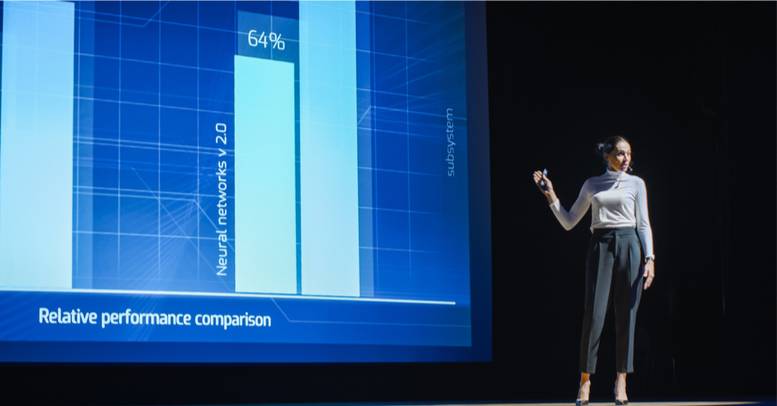The ultimate success of your organization depends on the value and service you bring to the market every day. Most of that value is distinguished by the strength of your product and services – and to deliver on that consistently, you need all your people firing on all cylinders. As leaders and business owners, we must always find ways to bring out the best in our people.
That’s why we are dedicating this month’s blog series to performance management. When done right, your performance management process can significantly impact your workplace productivity. Companies across the globe dedicate immense time, energy, and resources developing consistent performance management systems with documented processes to support the entire employee lifecycle from hiring, development, succession planning and exit strategies. Making up a $16 billion industry, organizations are creating a digital workplace that enables high productivity, offers flexibility and mobility, and uses modern communication tools.
This investment saves time and money in the long run, but employees don’t flourish being managed and developed in a macro system. People grow, perform and thrive because their leaders create systems that support each individual’s success. And since no two people are the same, leaders need insight into what makes each person tick. This month, as we focus on performance management, we are highlighting a variety of personality types as we define them through our Omnia Behavioral Assessment. This week’s blog is dedicated to The Visionary.
The Visionary Personality Type
The Omnia Behavioral Assessment measures an individual’s aptitudes and preferences across 4 main areas: Assertiveness, Sociability, Pace and Need for Structure. Most people who complete the assessment fall somewhere in, or close to, 1 of 17 personality types. Visionary personality types have a high level of assertiveness and sociability. They prefer solving problems more by instinct than data. They enjoy a fast-paced environment with a lot of plates spinning, and they prefer to work autonomously. They exercise a high degree of resilience. These personalities often thrive in sales and leadership positions. Each personality comes with its challenges too – so let’s dig into how to best motivate and manage this personality type.
Motivating a Visionary
People in the visionary personality group tend to be ambitious, expressive, time sensitive and independent. You can expect this person to take a proactive approach to the job and to be comfortable working autonomously. Once they come up to speed with the requirements of the role and the objectives, you will not likely have to micromanage this person. In fact, if you try, you may see an immediate decline in their engagement, or worse get a resignation notice.
Members of this group respond well to incentives for individual performance. They are confident and driven and are typically willing to put a degree of their compensation at risk by tying it to their performance. That is why this personality style does so well in commissioned sales roles. In the near term, this person could be motivated by sales contests. And keep in mind, they need quick wins. Visionaries love when their accomplishments are celebrated and highlighted, especially in group settings. Reward a Visionary’s continued compliance with additional independence and opportunities for promotion.
The Visionary personality has natural leadership traits, making it possible to move quickly into a role leading others. The Visionary personality thrives in an environment that rewards independent action, delivering on results and focusing on the big picture. They blossom in an environment where their manager encourages evaluating and changing policies that aren’t working. They appreciate unstructured goals and plenty of room to make decisions.
Managing a Visionary
When it comes to managing a Visionary, it is important to keep accountabilities. Visionaries tend to have big ideas, and lots of long-term plans; they prefer being left to their own methods to get there. If not carefully monitored, a Visionary may jump from one big idea to the next. They get easily distracted by new things (did anyone else just see that squirrel?), leaving a trail of unfinished projects and paperwork behind them. If you’ve got a Visionary running a function in your company, make sure they are setting realistic goals for the department and seeing the most important projects through to completion. It’s helpful to prioritize regularly with the Visionary as they can become quickly overwhelmed by thinking they can take on more than they can actually finish.
It’s also critical to be sure that your Visionary leader is clearly articulating goals and objectives to their direct reports and putting feedback mechanisms in place. With a high level of assertiveness and sociability, a Visionary leader can see in their mind what needs to get done and will drive for results, without necessarily stopping long enough to make sure employees are clear where they’re supposed to be heading. The Visionary personality style is naturally confident in their ideas, and that confidence can shut down employees with a personality that is less direct or assertive. The leader with the Visionary style needs to be accountable for building a culture that encourages feedback, fuels collaboration, and uses the skills and talents of everyone on the team for greater results.
What to Watch Out for When Leading a Visionary Personality
In addition to motivations and management tips for the leader who is managing a visionary personality style, I’m including some other things to watch out for. I can offer these tips because there’s no coincidence I’m writing this blog – I’m one of the lucky ones to have a Visionary personality style. (And yes, all of us at Omnia love our own personality types!). Here are some things that I would want a new boss to know about leading and supporting me.
Coach to Active Listening Skills.
Visionaries tend to be strongly people-oriented; I have never met a stranger and welcome every introduction to make a new friend. That also means I am a natural talker, and not the best active listener. The first piece of feedback I received from a manager was that I was overconfident. My entire life I had been praised for that, but when I got into a work setting, I learned through coaching that I was the first one to speak up in meetings and came across as always needing to be right. My behavior had two significant consequences – I was shutting down input from my colleagues and I was keeping myself from learning from them. Thankfully, I’ve continued to benefit from coaching and development throughout my career that constantly reminds me that there’s a reason I have two ears and only one mouth and to use them in that ratio. My family may argue that I still need development in this area.
Provide Help and Support with the Details.
Visionaries often gloss over the specific details and important matters that make or break us getting to the finish line. Sometimes we put unnecessary stress on our colleagues because we have not taken the time to seek enough input or to consider the ramifications of rolling out a new idea. Early in my leadership career, I was grateful for the leader who gave me a support team to help me run a national conference, that I was just sure I could manage on my own. Had I been left to my own devices, the speakers and content may have still been great, but there would not have been adequate participant support materials, conference transportation or even food for that matter.
Beware of Burn Out – theirs, their teammates, or both.
We tend to hold ourselves and everyone on our team to high standards. Keeping a check on reality is key. With so many ideas to pursue, a Visionary personality can over commit and burn the candle at both ends. Besides disappointing colleagues and clients, if not self-aware and disciplined, a Visionary can also burn themselves out with their lofty expectations of themselves. I can’t tell you how many times I ended up flat on my back without a voice after a huge event, or long stint of business travel. There is no dinner or breakfast meeting I’ll turn down or not suggest. If you look up FOMO (the fear of missing out) you may see my picture next to it. So those of you leading Visionaries with a high sociability and pace threshold, make sure we’re not over-extending. Even if we don’t think we need your support and oversight, we do. It’s better for our health, and your company’s culture that you regularly check in to be sure we’re setting realistic goals and meeting commitments while keeping a healthy balance.
Performance Management is an on-going commitment, not just an annual meeting. Every personality type can thrive in the work environment and perform at their peak when they are in a role that aligns with their strengths, and leadership invests time in understanding their unique qualities, motivators, and development potential. I will always be grateful for the feedback I got early in my work life, for the career path that matched my personality, and for the supportive leaders who gave me on-going feedback, development opportunities and support systems along the way. If you aren’t already doing so, please consider integrating assessments into your performance management system. Assessments aren’t just for selection and hiring – they give you insight into your employees’ unique behavioral traits helping you develop potential and foster an environment that motivates productive, healthy outcomes.
Speak to the Author!
Have an article specific question or want to continue the conversation? Now you can! Contact the author directly through the short form below and Keather Snyder will respond to your query. If you have a more general question please use our chat function, call 800.525.7117, or visit our contact us page and we’ll have a subject matter expert answer your questions.























